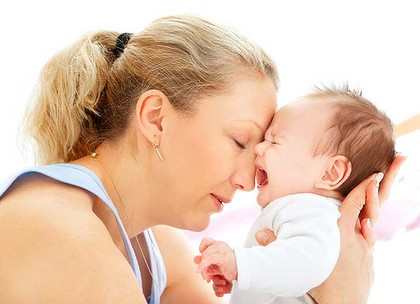What the national maternity review team should know: a mother's opinion
/This is the second post in my #FlamingJune #MatExp action.
Women want to be given unbiased evidence-based information to enable them to make informed choices about their care.
Women want to be treated as individuals.
Women want to be at the centre of all decisions made about their care.
Women want to be listened to.
My name is Michelle Quashie, and I'm a mother. I'd like to share my views.
We all know that any pregnancy may present with 'risks', but it's important that these risks are not the main focus, and that the women's feelings are considered. The label "high risk" can makes women feel like a disaster waiting to happen. It can create a mindset filled with trepidation, fear and anxiety. This can have a negative effect on women’s emotional wellbeing and that of her baby. Risk is associated with many factors during pregnancy, i.e. previous caesarean, age, gestational diabetes, high blood pressure, multiple pregnancy, previous miscarriage, previous pre term labour, foetal presentation, post dates, growth of baby, infection, BMI, the list goes on and it can be quite daunting. When a woman has this label her care is often consultant led ensuring that medical support is in place as a precaution. This is great, but it is so important that every woman has equal midwifery input into her care to balance the woman's needs. The word ‘midwife’ means ‘with woman’ we must not forget this and its importance. Even though there may be need for medical assistance we must not forget that the women is at some point going to give birth and will need the support of a midwife, her knowledge of childbirth and her care. This combined expertise of midwife and doctor, if needed, ensures that the risk and benefits of choices are considered, but it also helps to maximise safety and a positive birth experience.
The label 'high-risk' can make women feel like a disaster waiting to happen....
Society needs to trust a woman's ability to give birth, to acknowledge and respect her intuition and instinctive ability to understand her body, and to feel confident about its capabilities. We should encourage women to use their voice and question or discuss any concerns they may have. The focus of maternity care needs to ensure it is truly women centred. At booking, a woman should have the opportunity to discuss her plans for her pregnancy and birth. Opportunities to discuss fear or trauma in the past, whether it was result of previous pregnancy or a life event that could affect her ability to give birth should be identified, and appropriate support offered. A doula or ‘one to one’ care could be offered, as continuity of care is linked to better birth outcomes.
Birth should not be approached with trepidation, but with knowledge, understanding and support. .
Every pregnancy should be treated as a new journey addressing problems if and when they arise, whilst carefully considering previous history. By identifying women’s needs and wishes early on, care can then be tailored to her needs. A woman who feels in control is better at digesting information and is more able to have open discussions, and build trust and respect for those caring for her. Birth should not be approached with trepidation but with knowledge, understanding and support.
Birth has become very medicalised and Caesarean section rates are continually rising. It is often discussed in the tabloids, and by organisations such as the World Health Organisation. So what is being done to resolve this? I believe that perinatal metal health disorders, particulary postnatal depression, has increased in line with the over medicalisation of birth. Whilst no one disputes that a healthy mother and baby are a primary outcome, a mentally traumatised mother is not a healthy mother, and physical well-being is not the only parameter to be measured.
It would be great if the maternity review could address this and put some real action in place to reduce Caesarean rates, and ensure interventions are offered only when medically necessary, and after full, unbiased consultation with the woman.
My opinions are based on my own experience, but are similar to that of many women I liaise with on a daily basis. I hear stories from women across the country, who have very similar themes to my own maternity experience. My story can be found here.
In brief, here are the elements of my care that left me feeling disempowered, vulnerable, and sceptical about the birth ideology and what it represented.
- At booking in I was labelled high risk, trepidation set in and from that moment I felt like I was a disaster waiting to happen.
- My care was consultant led so I didn't have any midwifery input into my care plan.
- My birth wishes were denied due to 2 previous c sections even though reasons for these sections would not necessarily occur in third pregnancy and there was no robust evidence to deny my request.
- Care was given based on carers personal perception of risk, no discussions regarding my own considerations regarding risk perception took place.
- My previous surgical notes were not accessed or considered when decisions about mode of birth were being discussed instead the mode of birth was made on a systematic belief.
- Access to services like the ‘VBAC’ clinic was denied due to care givers personal views and labels accorded to me.
- Information given to me was biased focusing only on the risks of birth. The risks of third and fourth surgery were never spoken of even when I raised this as a personal concern.
- Birth discussions did not happen until 36 weeks leaving very little time for planning to take place and for any questions that I had to be explored. This proved to be very stressful and pressurising.
- I was booked for surgery without my consent even though I had expressed I did not want surgery.
- I had called ahead and tried to discuss this with the midwife on the phone but was told that it was my consultant who would make that decision. (Feedback that I have received in response to telling my story at midwifery training events is that sometimes midwives feel they are not supported by their peers when wanting to support women and her wishes when they are outside of the norm? “On your head be it” is a phrase that has been used.)
- No consideration was given to my emotional well being during discussions that focused on risk.
- I was told I could die leaving my children motherless, which was very upsetting, and made me question my mental health.
- No one responded to my request for help and support, and I was told that they had never experienced anyone give birth after 2 C sections.
- Fear based practice was evident, as a result my individual needs and wants were neglected.
- Interventions were offered to reduce risks without any discussion regarding alternative options. Information should have been given to enable me to make informed choices.
- My ability to birth was constantly questioned and doubted. This made me feel inadequate and less of a woman.
- No consideration was given to my future life plans; I was ridiculed for mentioning them and reminded to focus on here and now.
- Risk of uterine rupture was constantly focussed on and described as a major catastrophe, yet women are being offered induction daily with this possible risk not being highlighted in such a way?
I consider that ignoring my wishes, scare mongering and the emotional blackmail that I suffered were all breaches of the health professional codes of conduct, and guidance on interacting with patients. Regulatory organisations state that a patient’s informed choices must be respected, even if the individual professional is not in agreement. Some health professionals feel they can simply ignore the requirements of their regulating organisations and violate legal and human rights. Are there any plans in place to address this as part of the Maternity Review?
Here are the elements of my care that made me feel empowered, happy and confident:
- Previous pregnancies and complications were not considered a threat to this pregnancy.
- I was told that 2 previous c sections did increase my risk but even though the risk was there, it was small and put into perspective alongside risks to surgery and future pregnancies.
- Midwifery support. This was absolutely key to restoring my strength and emotional well being.
- I was able to openly discuss the risk and the benefits of a vaginal birth with the main focus being on me as the individual and my own perception of risk. Consideration was constantly given to my feelings and my wishes. I felt respected and empowered and in control of my body and fully supported.
- A consultant obstetrician who discussed risks and benefits to both surgery and VBAC. The conversations were very balanced and open, and I felt that I was supported either way.
- Impact on my future pregnancies were also discussed and recognised as an important factor to consider.
- The consultant midwife attended the consultant appointment with me, supported and contributed to the discussions. I was at the centre of these discussions facilitating real 'woman centred' care. Our unity was my maternity experience.
- I left these appointments feeling informed, supported, happy and empowered as I was able to make educated choices about my care.
- Faith in my body and my ability to birth were never doubted. I was given some great advice on active birthing, what to expect and the physiological changes that would happen to my body were fully explained so I really felt that I understood birth.
- My midwife discussed oxytocin, and its important role in birth so in turn encouraged me to be happy.
Just sitting having these lovely, very womanly discussions were so important. I felt excited to about giving birth and grateful that I was being given the opportunity to experience it.
All women should feel empowered, in control and supported during pregnancy and birth.
It is a very vulnerable time for women and there is no way out. Consideration should be given to the woman’s emotional well being as well as her physical needs. It is not about 'allowing' or 'not allowing'; it's about considering, facilitating and supporting.
Experiencing birth has truly been life changing for me. The positive effects I am experiencing have been overwhelming and surface in some way on a daily basis. I want all women to have the best possible chance of having a positive birth experience and I hope the National Maternity Review does too.
You can follow Michelle on Twitter @QuashieMichelle






